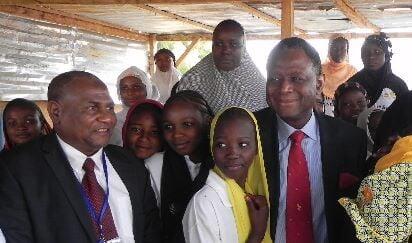On this occasion, Dr. Osotimehin visited a ‘safe space’ for adolescent girls on the outskirts of the capital Niamey, part of UNFPA Niger’s Adolescent Girl Initiative. The initiative empowers vulnerable girls aged 10-19 through an 8-month programme designed to delay child marriage and prevent adolescent pregnancy.
This ‘safe space’ is part of a pilot programme that started in August 2013 with 1600 girls in 40 communities in the regions of Zinder, Maradi, Tillabery and Niamey.
The strategy uses mentors – young women aged 20-40 with at least a secondary education level – who serve as role models in their communities. The adolescent girls go through a comprehensive programme of 31 sessions on topics such as life skills, hygiene, reproductive health, and financial skills, all aimed at empowering them with self-esteem, leadership skills, and the ability to protect themselves from violence, peer pressure, HIV and other sexually transmitted diseases.
Trained facilitators organize monthly community dialogues about girls’ rights and protection to create a supportive environment. The young girls are also offered health check-ups and literacy classes.



